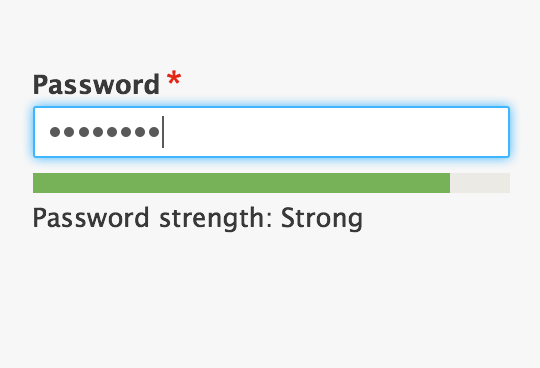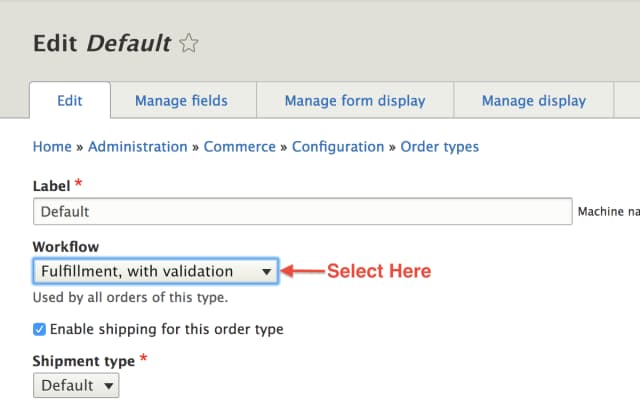E-commerce websites are increasingly using the newest technologies to enhance their outreach and customer service. They can offer unique and better features for their audience that improves the visitor experience on the website.
Drupal has been the CMS of choice for large-scale websites. It provides newer features for e-commerce businesses and allows their customers to have a better experience shopping online. In addition, you can use a Drupal eCommerce module that will help you engage more with the visitors and ensure more conversions through your website.
Fully Open-Source
One of the critical aspects of any CMS is that the vital features usually come in a paid version. However, Drupal is open-source in the true sense, and all the released modules are readily available to everyone. Therefore, you need not be worried about the security aspect too! Drupal also has a widespread community whose members can help you with any issue that may arise.
Drupal for eCommerce has thousands of contributed modules that allow you to customise the e-commerce site for the needed features. As it is open-source, developers can use it at any time without the need for a license. There are frequent updates to Drupal, and the latest version has deprecated the sections that are not required anymore. Web developers can choose a Drupal eCommerce module that can allow you to add customised features on the fly.
Several Functionalities
One of the reasons Drupal is popular for heavier websites is its outstanding features for eCommerce businesses. Developers can quickly develop feature-rich websites as several features come embedded as modules and allow faster deployment. You can utilise several modules to add features to the website easily. You can also have the benefits of event calendars, photos and videos. The multi-user functionality also ensures that it is the ideal CMS for enterprise clients.
For example, a global e-commerce website must support critical features like multi-language, multi-currency and different tax calculations. You can have these features on your Drupal e-commerce website and more! Drupal Commerce provides adequate features that cover the product catalogue to shopping cart lifecycle. It can also support custom workflows and different order types, stock management, multiple store options, etc. Furthermore, you can undertake Drupal eCommerce development and take advantage of videos, event calendars, communities and forums, etc., on the website.
Content-Driven
We have seen that Drupal can improve search rankings through its dedicated modules. Drupal eCommerce development ensures that you have a content-driven website and maintain it without too many hassles. There are no restrictions on customisation too. It is easy to design a multi-lingual online store within a short time. You can also manage your products easily. Operating a blog is smooth and without any problems.
Drupal's strength is its ability to create structured content and content editing modules. You can organise the products on the website and quickly add, remove, or tag the products from the lists. There are several grids and tables to display the products. Drupal can also ensure that visitors engage more with your website and customise the interface to fit your needs. By using Drupal for eCommerce, you can create and edit content faster, making it easier for developers.
Data Security
As the number of successful data breaches increases, one of the prime considerations when deciding on the CMS is data security. Drupal is known to be secure, and it has been one of its prime considerations since its beginning. As e-commerce websites store a vast amount of their customers' data and financial details, security is of paramount importance. Drupal has a dedicated team that monitors the security aspect and assesses any vulnerabilities to the modules.
It has specific modules to ensure password security, multiple-level database encryption, and authorised access controls. Security Kit is among the best eCommerce modules and mitigates the risk of web application vulnerabilities, while the Password Policy module can enforce password restrictions by defining policies. It also supports the use of Captchas and the two-factor authentication mechanism for added security. The Automated Logout module logs out users after a pre-set time interval.

Also check out our article to know why Drupal is Best CMS for Website Development.
Supports Easy Integrations
The website should integrate several third-party applications to benefit your customers. It will also help your business with analytics to provide better services. Integration with Drupal websites is easy, and you can readily interface with other applications using a Drupal eCommerce module. It will help interact with customer service management software, payment gateways, live chat, email marketing software, etc. The Google Analytics module ensures that your web admin can view web analytics through few clicks. You can also readily interface your website with your social media channels.
It has modern APIs that allows you to interface readily with other applications. For example, the Commerce API and Commerce Cart API modules can allow enhanced features in Drupal Commerce. It enables you to work with several tools, applications, mobile apps that can use its e-commerce capabilities. You can also use the Commerce Stripe module that interfaces Drupal Commerce with Stripe. It allows customers to make payments without leaving the website.
Robust e-Commerce Workflows
Choosing Drupal Commerce keeps your website with some of the best brands globally. Using Drupal for your online shop also allows you to create enticing landing pages and blogs as well. You can also envisage robust workflows and improve conversions on your e-commerce store. Drupal can help build a simple e-commerce store or a complex online marketplace covering products across multiple categories.
The Commerce Simple Stock module helps to manage stock easily and has advanced features that improve customer satisfaction. You can use the Commerce Product Add-on module to increase the chances of the customer buying other products during the purchase process. The Commerce Shipping module provides a shipping rate calculation system, and the Customer Invoice module helps by providing flexible invoicing capabilities.

Improved Performance
Using Drupal ensures an enhanced performance level for your website. One of the critical parameters to measure it is by taking care of faster page load time for the site. Drupal has assured this through various modules. For example, Blazy helps load web pages faster, and the CDN module establishes rapid integration with a content delivery network. Your website is also mobile-ready, and you can create scenarios to understand what content will be preferred by users on their mobile devices.
SEO is also a burden for heavy websites. Using the Drupal eCommerce module for SEO helps to improve search rankings. A specialised SEO Checklist module can ensure that your site is adhering to the SEO best practices. The Metatag module helps web developers to provide structured data automatically. AN XML Sitemap module can create the sitemap of the website adhering to sitemaps.org specifications. Finally, the Pathauto module can ensure that the URLs are friendly to search engines.
Conclusion
The eCommerce industry faces intense competition. Therefore, there is a need to design a feature-rich website that can induce improved interaction with customers. Drupal can help as it has modules that can cater to a customised website for e-commerce brands. In addition, it provides a flexible website and features that can ensure increased revenues. You should partner with a skilled Drupal eCommerce agency to design an effective website for your online store.




